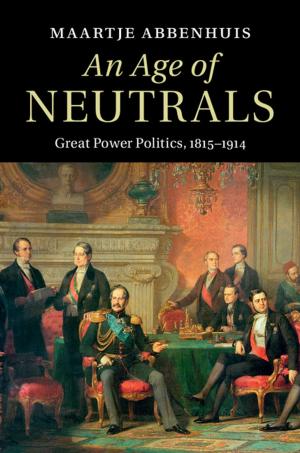The Politics of Prohibition
American Governance and the Prohibition Party, 1869–1933
Nonfiction, History, Americas, United States, 19th Century, Social & Cultural Studies, Political Science| Author: | Lisa M. F. Andersen | ISBN: | 9781107424296 |
| Publisher: | Cambridge University Press | Publication: | September 9, 2013 |
| Imprint: | Cambridge University Press | Language: | English |
| Author: | Lisa M. F. Andersen |
| ISBN: | 9781107424296 |
| Publisher: | Cambridge University Press |
| Publication: | September 9, 2013 |
| Imprint: | Cambridge University Press |
| Language: | English |
This book introduces the intrepid temperance advocates who formed America's longest-living minor political party - the Prohibition Party - drawing on the party's history to illuminate how American politics came to exclude minor parties from governance. Lisa M. F. Andersen traces the influence of pressure groups and ballot reforms, arguing that these innovations created a threshold for organization and maintenance that required extraordinary financial and personal resources from parties already lacking in both. More than most other minor parties, the Prohibition Party resisted an encroaching Democratic-Republican stranglehold over governance. When Prohibitionists found themselves excluded from elections, they devised a variety of tactics: they occupied saloons, pressed lawsuits, forged utopian communities, and organized dry consumers to solicit alcohol-free products.
This book introduces the intrepid temperance advocates who formed America's longest-living minor political party - the Prohibition Party - drawing on the party's history to illuminate how American politics came to exclude minor parties from governance. Lisa M. F. Andersen traces the influence of pressure groups and ballot reforms, arguing that these innovations created a threshold for organization and maintenance that required extraordinary financial and personal resources from parties already lacking in both. More than most other minor parties, the Prohibition Party resisted an encroaching Democratic-Republican stranglehold over governance. When Prohibitionists found themselves excluded from elections, they devised a variety of tactics: they occupied saloons, pressed lawsuits, forged utopian communities, and organized dry consumers to solicit alcohol-free products.















